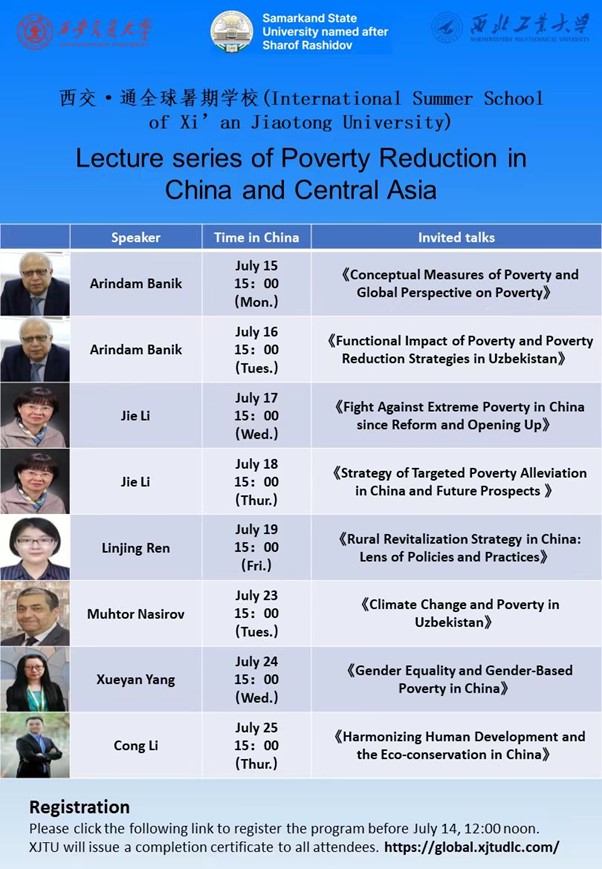Summer School on Poverty Reduction Strategies Organised by Jiangtong University, China, in collaboration with Samarkand State University

Poverty is a complex issue that impacts various aspects of society, including economic, social, psychological, and political dimensions. It also relates to human dignity, fairness, and justice. There are different ways to measure poverty, but mainstream economics has historically focused on market poverty, which revolves around the inability to afford necessities. However, humanistic economics emphasises equity and justice as core principles in understanding poverty. In this context, Xiantong University in China recently hosted a summer school from July 15 to July 25, 2024, focusing on poverty reduction in China and Central Asia. The program was organised in collaboration with Xian’s Jiangtong University (Ranked 295th in QS World University Rankings 2024), Northwestern Polytechnical University-China (Ranked 547th in the QS World University Rankings 2024), and Samarkand State University-Uzbekistan (Rated Five Star by QS). The summer school's theme was based on the idea that humanistic economic thinking influences the concept and measurement of poverty, considering various aspects such as social inclusion, capability and entitlement deprivation, child poverty, human poverty, climate change, and multidimensional poverty. The program also discussed the evolution of poverty measurement from mainstream economics to humanistic economics, incorporating ethical values. Additionally, it explored successful poverty reduction strategies and case studies. The summer school attracted 156 participants from developing countries worldwide and featured two distinguished professors, Dr. Muhtor Nasirov and Professor Arindam Banik from Samarkand State University.


